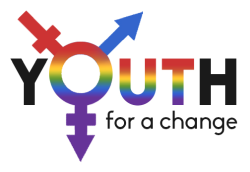Review of Climate Injustice by Friederike Otto, Originally published in German in 2023. First published in English in 2025
Heat waves are the most deadly effect of climate change, even more deadly than droughts or floods. In the summer of 2021, an extreme heat wave began in the Pacific Northwest on June 25, from Portland, USA, to the interior of BC, where the town of Lytton, set a new heat record of 49.6 degrees C (121.3 degrees F). The next day a forest fire destroyed Lytton, while the heat wave lasted until July 7. The Pacific Northwest heat wave affected people who weren’t used to such extremes. Fans or air conditioning weren’t turned on because the populace wasn’t prepared and didn’t have them. Nine million people live in this region.
“For every person who died from the heat dome, ten or more may have suffered heat stroke, dehydration, or other complications, including permanent, life-altering injuries . . . I saw more patients with heat illness during June’s extreme heat than I have in my entire career.” (West Coast Environmental Law, July 19, 2021) As a result of Friederike Otto’s study, in her book Climate Injustice, it was concluded that the heat dome had been made “a lot more than 150 times more likely” because of climate change. And if the increase in the earth’s temperature is more than 1.5 degrees C, and increases to 2 degrees C, the Pacific Northwest, including towns in BC, like Vancouver and Lytton, will experience these heat waves every five to ten years.
The world’s average temperature has increased by more than 1 degree C since the beginning of the Industrial Revolution. If your body temperature is normal at 37 degrees C (98.6 degrees F), and then becomes one degree higher, such as 38.2 degrees C (100.76 degrees F), this represents a huge difference to your health and well-being. On our planet it means that climate change has accelerated, causing extreme weather events, like heat waves, droughts, and floods, to occur more often and in a greater intensity.
Otto is a climate scientist who doesn’t just calculate the physics and mathematics of the climate crisis, but investigates the political aspects as well. For example, she is concerned with who is dying due to extreme weather events and concludes it is the poor, the unhoused, and the uninformed. Climate change is not just a technical event, measured by hotter temperatures, rising heights of waters, or catastrophic crop loss due to drought, but a political event measured by the loss of thousands and thousands of lives. Otto states that the 2015 Paris Agreement set the temperature the earth should not exceed at 1.5 degrees C, but explained that this is not a scientific target but a political one. It is a compromise between “death, damage, and loss on the one side, and profits from burning fossil fuels on the other.” The serious pursuit of climate protection is not undertaken in the Global South, or the Global North, because of patriarchal and colonial structures, and inequality within the population, between the genders, the rich and poor and different ethnic groups. But the poor, the unhoused, and the uninformed, cannot protect themselves, whereas the wealthy can survive. The lack of needed infrastructure or better insulated housing due to poverty makes people much more vulnerable and threatens their lives.
Burning fossil fuels are the cause of climate change. “Climate change is a symptom of this global crisis of inequality and injustice, not its cause.” Otto asks “how many more human lives, how many more coral reefs, how many more insects will we allow ourselves to lose to the short-term continued use of comparatively cheap fossil fuels in the Global North?”
Politicians are often contradictory. Former Prime Minister of Canada, Justin Trudeau, on Monday in June 2019 declared that Canada was in the midst of a national climate emergency, and the next day, Tuesday, approved a massive pipeline expansion project. The Trans Mountain Pipeline expansion was completed in May, 2024, and has the capacity to move 890,000 barrels of oil each day from northern Alberta to southern British Columbia. How will this decrease oil burning?
Otto has chapters on sub-Saharan Africa, where people are more vulnerable to heat than in Europe and thousands die due to heat but whose deaths are not recorded as heat–related. She discusses drought in South Africa, poverty in Madagascar, flooding in Pakistan, the end of the rain forest in Brazil. She examines all not just from a climate change perspective, but also from a desire to save the multitude of innocent lives that are being lost. Climate Injustice is well-worth reading.
Politicians and governments must act, and act now, to save people’s lives, and protect them from life-altering injuries. In Otto’s words, “There’s no time left.”












